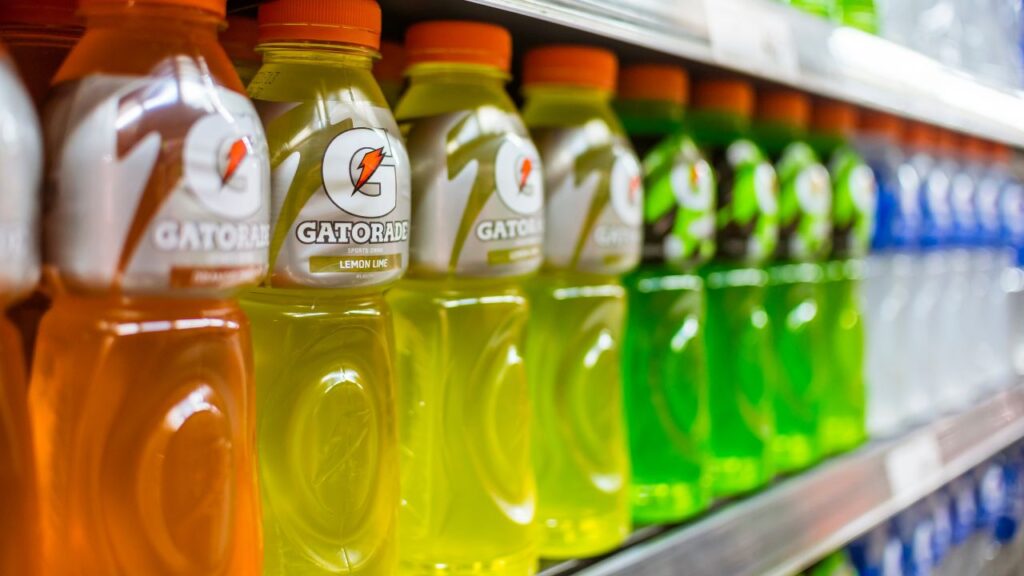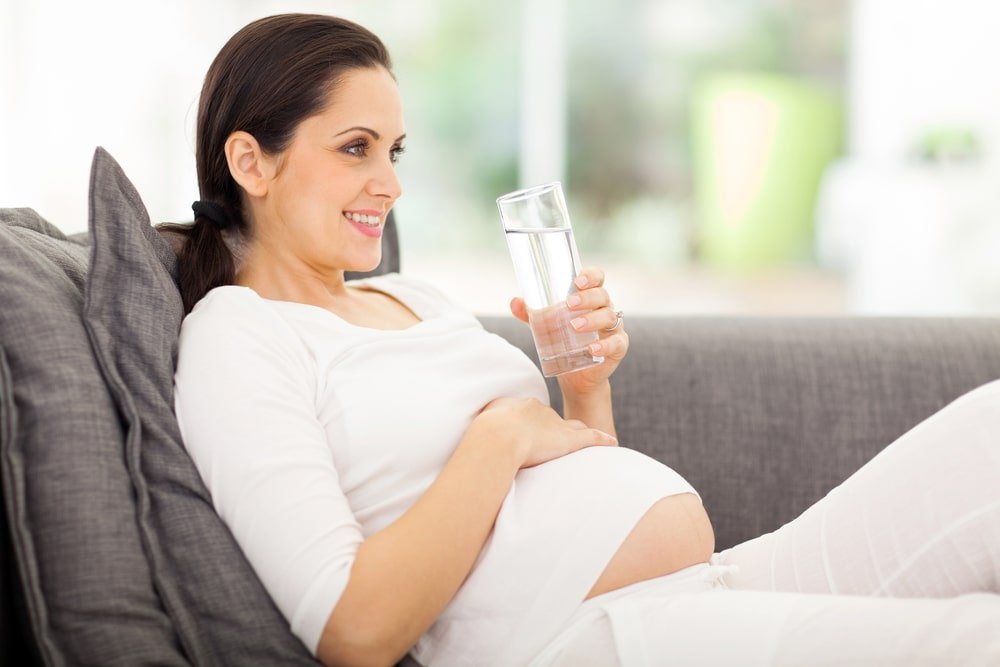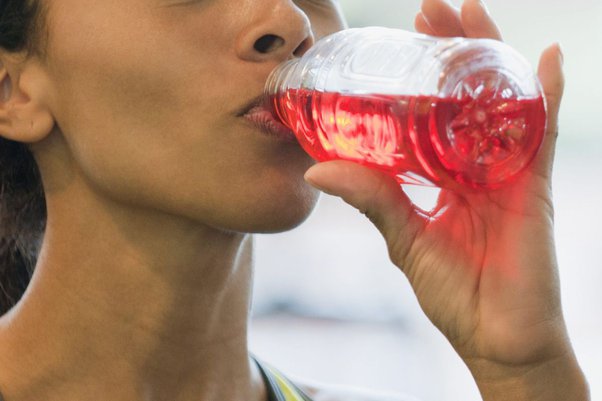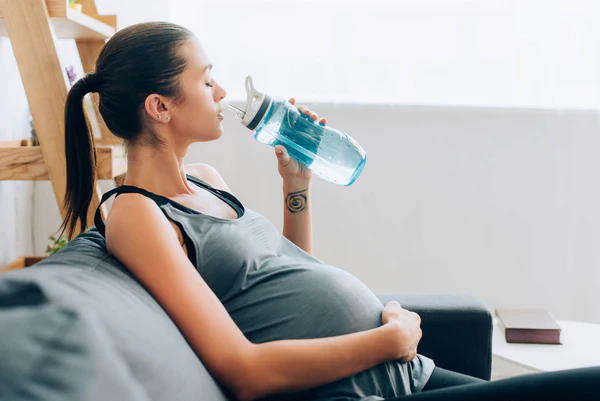Pregnancy is a transformative journey marked by numerous changes, not the least of which is the heightened emphasis on health and wellness. Among the many aspects that pregnant women consider, hydration stands as a pillar of utmost importance. Adequate hydration isn’t just a matter of comfort; it’s crucial for the well-being of both the mother and the developing baby.
During pregnancy, the body undergoes significant changes. Increased blood volume, amniotic fluid, and the growing demands of the fetus contribute to the necessity of maintaining optimal hydration levels. Water, alongside essential nutrients, supports the functioning of cells, facilitates nutrient transport, and aids in waste removal—all vital processes for a healthy pregnancy.
In the quest to stay hydrated, various options present themselves, including sports drinks like Gatorade. Known for replenishing electrolytes and often touted as a solution for hydration, Gatorade raises questions when it comes to its suitability during pregnancy. The beverage, formulated to rehydrate and replace electrolytes lost during intense physical activity, prompts expectant mothers to wonder: Is it safe? Is it beneficial?
Recommended: Knee To Chest Position In Labor: All You Need To Know
This article aims to explore the nuanced relationship between Gatorade and pregnancy, shedding light on whether it’s a suitable choice for expectant mothers seeking optimal hydration. By examining its ingredients, benefits, potential risks, and alternatives, we aim to provide a comprehensive guide for pregnant women navigating their hydration needs.
All About Gatorade

What is Gatorade?
Gatorade, a popular sports drink, was initially developed in the 1960s to aid athletes in replenishing fluids, electrolytes, and carbohydrates lost during vigorous exercise. Marketed as a solution to prevent dehydration and boost performance, Gatorade has evolved into a widely recognized beverage available in various flavors and formulations.
Ingredients in Gatorade
The ingredients in Gatorade typically include water, sugars (such as sucrose and dextrose), electrolytes (sodium, potassium, and magnesium), citric acid for flavor, and sometimes artificial colors. The composition aims to swiftly restore electrolyte balance and provide a quick energy boost.
Recommended: Top 4 Signs That a Man Has Not Been Sexually Active
Impact on Pregnant Women
While Gatorade serves as an effective hydrating solution for athletes and individuals engaging in intense physical activity, its compatibility with pregnancy raises considerations. Expectant mothers often question the safety and suitability of Gatorade due to its sugar content, artificial additives, and electrolyte levels.
Sugar Content Concerns
One of the primary concerns is the sugar content in Gatorade. Some variants contain a significant amount of added sugars, which, when consumed excessively, may lead to increased calorie intake and potential complications, such as gestational diabetes or excessive weight gain during pregnancy.
Recommended: 10 Best Vitamins For Hormonal Acne
Electrolytes and Pregnancy
Electrolytes, crucial for maintaining proper bodily functions, are found in Gatorade. However, the levels in this beverage might not be tailored to the specific needs of pregnant women. While electrolyte balance is essential, excessive intake or imbalance could pose risks, particularly if not aligned with an individual’s unique health conditions or the demands of pregnancy.
Comparing Gatorade with Other Beverages
- Water: It’s the ultimate hydrator and has no added sugars or calories. It’s great for everyday hydration but lacks the electrolytes that Gatorade provides for intense physical activity.
- Sports Drinks (besides Gatorade): There are other sports drinks similar to Gatorade, like Powerade, which offer similar electrolyte replenishment but might have slightly different formulations in terms of sugar content or added vitamins.
- Sodas and Energy Drinks: These contain high levels of sugars or artificial sweeteners, caffeine, and other additives. They’re not designed specifically for hydration during physical activity and can even be dehydrating due to their caffeine content.
- Coconut Water: It contains natural electrolytes and is lower in sugar compared to some sports drinks. It can be a good option for moderate activity but might not have the precise formulation of electrolytes found in drinks like Gatorade.
When comparing these beverages, it’s essential to consider your needs. Gatorade and similar sports drinks can be beneficial during intense physical activity to replace lost fluids and electrolytes, but for everyday hydration, water remains the go-to choice.
Recommended: Can I Take Magnesium While Breastfeeding?
By comprehending the formulation, purpose, and potential impact of Gatorade on pregnant women, expectant mothers can better navigate their hydration choices and determine whether it align with their specific health needs during this critical phase.

Hydration During Pregnancy
Pregnancy brings about a cascade of physiological changes, significantly increasing the body’s demand for water. The body’s blood volume expands, the amniotic fluid increases, and the placenta develops—all requiring a substantial intake of fluids. Adequate hydration becomes paramount as water plays a pivotal role in transporting nutrients, eliminating waste, and supporting the overall health and development of the fetus.
Recommended: Does Family Planning Affect Future Pregnancy?
Dehydration during pregnancy can lead to various complications, including urinary tract infections, preterm labor, low amniotic fluid levels, and even neural tube defects. Furthermore, dehydration might exacerbate common pregnancy discomforts like constipation, fatigue, and dizziness, affecting the mother’s well-being.
The precise hydration needs during pregnancy vary from woman to woman and across different stages of gestation. Factors such as climate, activity levels, and individual health conditions influence these requirements. While there’s no one-size-fits-all guideline, healthcare providers often recommend a baseline daily intake of water and fluids to ensure adequate hydration.
Optimal hydration during pregnancy goes beyond just the quantity of fluids consumed. Emphasizing nutrient-rich sources of hydration, such as fruits, vegetables, and balanced fluids, becomes crucial. This approach not only supplements hydration but also provides essential vitamins and minerals necessary for a healthy pregnancy.
Recommended: Does Blue Cross Blue Shield Cover Testosterone Treatment?
Pregnant mothers are encouraged to pay attention to signs of dehydration, such as dark urine, dry mouth, dizziness, or infrequent urination. Being proactive about staying hydrated and recognizing the body’s signals for fluid intake aids in preventing dehydration-related complications.
Understanding the amplified need for hydration during pregnancy underscores the significance of making informed choices about the fluids consumed, ensuring they contribute positively to both maternal and fetal health.

Can You Drink Gatorade While Pregnant? Is It Safe?
Generally, Gatorade is considered safe for pregnant women in moderation. It can be beneficial in helping to maintain hydration, particularly if you’re experiencing nausea, vomiting, or if you’re losing fluids due to increased perspiration or physical activity.
Recommended: Does Ovulation Make You Emotional?
However, it’s essential to consider a few things:
- Ingredients: Gatorade contains sugars, electrolytes, and sometimes artificial colors or flavors. While these ingredients are generally considered safe, it’s a good idea to check with your healthcare provider, especially if you have specific dietary concerns or medical conditions.
- Sugar Content: Some flavors of Gatorade can have a high sugar content. If you’re concerned about sugar intake, you might want to opt for the lower-sugar or sugar-free varieties.
- Electrolytes: Gatorade provides electrolytes like sodium and potassium, which can be helpful in maintaining hydration. However, excessive intake of these electrolytes may not be suitable for everyone, so moderation is key.
- Consult Your Healthcare Provider: It’s always a good idea to discuss your diet and any concerns with your healthcare provider during pregnancy. They can offer personalized advice based on your health and individual circumstances.
Opinions on the safety of consuming Gatorade during pregnancy vary among healthcare professionals. Some practitioners advocate for moderate Gatorade intake, considering it a reasonable option to replenish fluids and electrolytes, particularly for pregnant women experiencing excessive sweating, nausea, or those with active lifestyles. However, others advise caution due to concerns about its sugar content and artificial additives.
Factors such as an individual’s health status, gestational complications, dietary habits, and overall lifestyle play a significant role in determining the safety of consuming Gatorade during pregnancy. Consulting with a healthcare provider becomes imperative to assess whether Gatorade aligns with the specific needs and health conditions of the expectant mother.
Recommended: How To Get Rid Of Smelly Discharge During Pregnancy
While Gatorade remains an option for hydration, exploring alternatives like coconut water, natural electrolyte-rich beverages, or even homemade electrolyte drinks might offer similar benefits without the added sugars and artificial additives. Moderation, if opting for Gatorade, is often recommended to mitigate potential risks associated with excessive sugar intake.
Navigating the safety aspects of Gatorade during pregnancy requires a nuanced understanding of its potential benefits and risks, emphasizing the importance of personalized guidance and moderation for expectant mothers.

Alternatives to Gatorade During Pregnancy
1. Coconut Water
Coconut water emerges as a natural alternative rich in electrolytes such as potassium, magnesium, and sodium. Its low sugar content compared to many Gatorade formulations makes it an appealing choice for hydration during pregnancy. Additionally, it offers a subtle sweetness and refreshing taste without artificial additives.
2. Homemade Electrolyte Drinks
Creating homemade electrolyte drinks using natural ingredients like fresh fruits, honey, a pinch of salt, and water allows for customization while avoiding excessive sugars and artificial additives. Recipes can be tailored to individual tastes and dietary preferences, offering a blend of essential electrolytes without compromising on health.
3. Natural Fruit Juices
Certain fruit juices, diluted with water to reduce sugar concentration, can provide hydration and essential nutrients. Opting for freshly squeezed juices or those without added sugars ensures a healthier alternative to commercial sports drinks like Gatorade.
Recommended: Does Ovulation Make You Emotional?
4. Electrolyte Enhanced Water
Several brands offer electrolyte-enhanced water that mimics Gatorade’s benefits without the added sugars or artificial components. These drinks often contain electrolytes but with a focus on hydration rather than intense sports performance, making them a suitable choice for expectant mothers seeking balanced hydration options.
5. Pregnancy-Safe Hydration Formulas
Specialized hydration formulas designed specifically for pregnant women are available in the market. These beverages often contain essential nutrients, vitamins, and electrolytes tailored to meet the unique needs of expectant mothers, providing a safe and targeted option for hydration.
When selecting alternatives to Gatorade, pregnant women should consider factors such as sugar content, electrolyte balance, and any additional additives. Consulting healthcare providers for personalized recommendations based on individual health conditions becomes crucial in making informed choices.
Recommended: Can a Woman Have an Orgasm After Menopause?
Exploring these alternatives empowers expecting mothers to find hydration solutions that not only cater to their increased fluid needs during pregnancy but also align with their health goals and preferences.

Guidelines for Consumption of Gatorade During Pregnancy
1. Consult Healthcare Providers
Prior to incorporating Gatorade or any sports drink into the pregnancy diet, consulting healthcare providers, such as obstetricians, midwives, or nutritionists, is crucial. These professionals can offer personalized advice based on individual health conditions, gestational stage, and dietary needs.
2. Moderation is Key
If considering Gatorade, moderation becomes essential. Limiting intake to moderate quantities helps minimize potential risks associated with excessive sugar consumption. Healthcare providers can provide specific recommendations on the frequency and quantity suitable for an individual’s circumstances.
3. Read Labels and Choose Wisely
Carefully examining product labels assists in selecting Gatorade variants with lower sugar content or opting for alternatives that prioritize natural ingredients and lower additives. Choosing options with reduced sugar and artificial additives contributes to a healthier hydration choice.
Recommended: Top 5 Foods To Avoid While Taking Letrozole For Fertility
4. Hydration Through Various Sources
Relying solely on Gatorade for hydration might not be optimal. Emphasizing a diverse intake of fluids, including water, herbal teas, natural fruit juices (with caution due to sugar content), and electrolyte-rich foods, helps maintain a balanced approach to hydration.
5. Assess Individual Needs
Considering individual health conditions, such as gestational diabetes, excessive weight gain, or electrolyte imbalances, becomes paramount. Tailoring fluid intake, including Gatorade or alternatives, to align with these specific needs ensures a safe and healthy approach to hydration during pregnancy.
6. Monitor Response
Observing how the body responds to Gatorade consumption is crucial. Monitoring blood sugar levels, weight gain, and any adverse reactions or discomforts helps in determining the beverage’s compatibility and adjusting consumption accordingly.
7. Pregnancy-Specific Formulations
Considering specialized hydration formulas designed explicitly for pregnant women can offer a more tailored and safer option. These formulations cater to the unique nutritional requirements of expectant mothers, providing a targeted solution for hydration.
8. Regular Reevaluation
Regularly reevaluating dietary choices, including Gatorade consumption, with healthcare providers throughout pregnancy ensures adjustments can be made as needed to accommodate changing health conditions or gestational stages.
Following these guidelines facilitates a balanced and informed approach to incorporating Gatorade or similar beverages into the pregnancy diet, optimizing hydration without compromising maternal or fetal health.
FAQs
Can you drink Gatorade while pregnant?
Yes, in general, it is safe for pregnant women to drink Gatorade in moderation. Gatorade is designed to replenish fluids and electrolytes, which can be beneficial during pregnancy, especially if you are experiencing dehydration or morning sickness.
Are there any concerns about drinking Gatorade during pregnancy?
While Gatorade is generally considered safe, it’s important to be mindful of the sugar content. Some healthcare professionals may advise limiting the intake of sugary beverages during pregnancy to avoid excessive weight gain and other potential health issues.
Can Gatorade help with dehydration during pregnancy?
Yes, Gatorade can help with dehydration during pregnancy as it contains electrolytes like sodium and potassium, which are important for maintaining fluid balance in the body. However, it’s crucial to consult with your healthcare provider if dehydration is a concern.
How much Gatorade is safe to drink during pregnancy?
It’s recommended to consume Gatorade in moderation. Excessive intake of sugary beverages can contribute to excessive weight gain and other health issues. It’s best to consult with your healthcare provider to determine an appropriate amount based on your individual health needs.
Are there any specific flavors of Gatorade that should be avoided during pregnancy?
There is no specific flavor of Gatorade that is universally recommended to be avoided during pregnancy. However, if you have any concerns about artificial colors or flavors, it’s advisable to choose the most natural and plain options available.
Can Gatorade help with morning sickness during pregnancy?
Gatorade may help with morning sickness by providing hydration and electrolytes. Some pregnant women find that sipping on Gatorade can be more tolerable than plain water when experiencing nausea. However, individual reactions may vary, and it’s essential to listen to your body.
Are there alternative drinks to Gatorade for staying hydrated during pregnancy?
Yes, there are alternative drinks for staying hydrated during pregnancy, such as water, coconut water, and diluted fruit juices. It’s important to choose beverages that are low in added sugars and caffeine and to maintain a well-balanced diet for overall health.
Can Gatorade replace water during pregnancy?
While Gatorade can contribute to hydration, water remains the best choice for overall hydration during pregnancy. Water is essential for various bodily functions, and it does not contain the added sugars and calories that some Gatorade varieties do. It’s recommended to prioritize water intake and use Gatorade occasionally if needed.
Conclusion
While Gatorade offers hydration benefits, its suitability during pregnancy hinges on moderation and individual considerations. Alternatives like coconut water or homemade electrolyte drinks present healthier options. Consultation with healthcare providers remains paramount for personalized guidance.
Prioritizing hydration through diverse sources ensures optimal health for both mother and baby, empowering expectant mothers to make informed choices for a balanced pregnancy journey.
